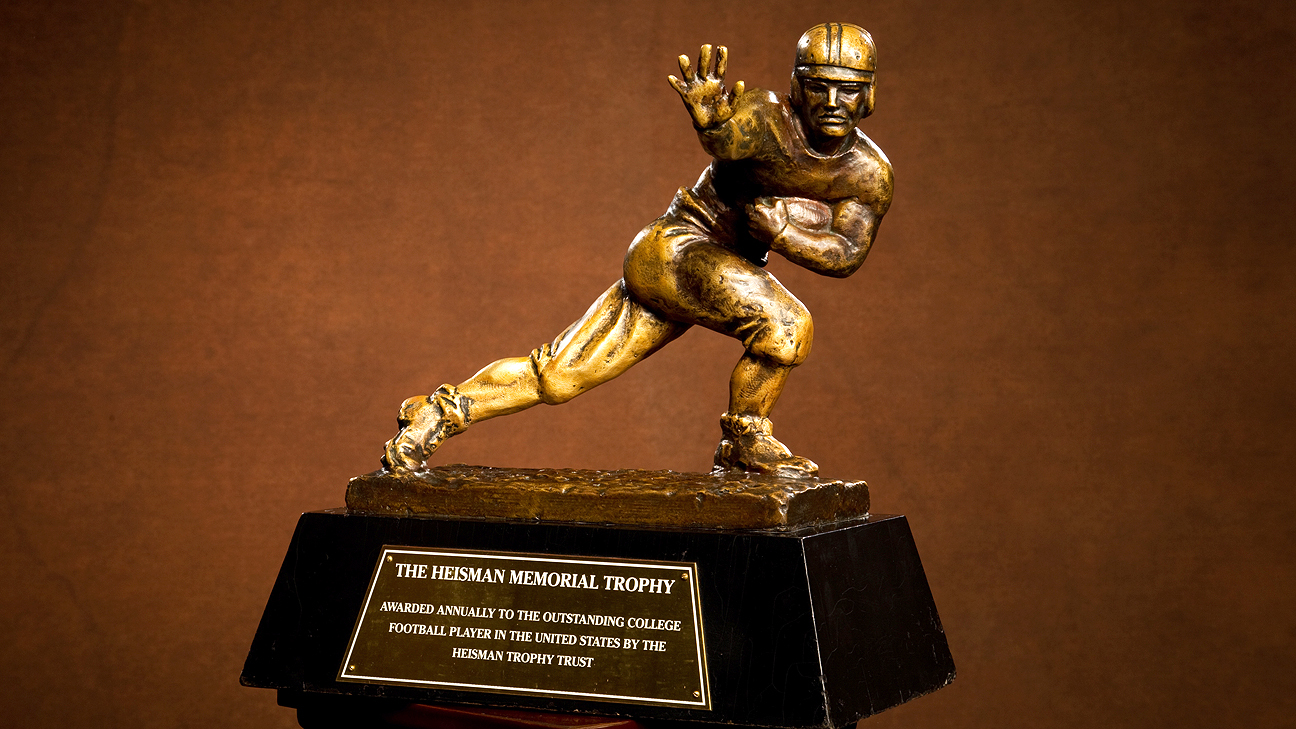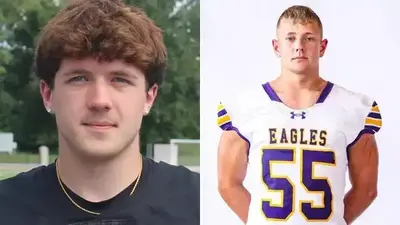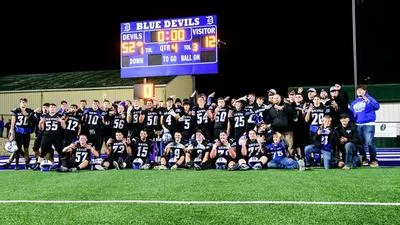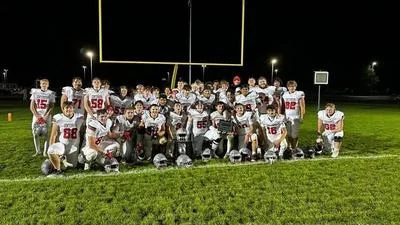Let's talk about the Heisman Trophy.
It is arguably the most prestigious and sought-after individual trophy in American amateur sports (at least on the collegiate level) and was most recently bestowed on Caleb Williams, a sophomore QB for the University of Southern California.
The Heisman Memorial Trophy is awarded annually to the most outstanding player in college football. It is presented by the Heisman Trophy Trust in early December before the post-season bowl games.
The award was created by the Downtown Athletic Club in 1935 to recognize "the most valuable college football player east of the Mississippi." It was first awarded to Jay Berwanger, a halfback for the University of Chicago. The award was named in honor of the club's athletic director, John Heisman, after his death in October 1936 and broadened to include players west of the Mississippi. Heisman was active in college athletics as a football player; head football, basketball, and baseball coach; and athletic director.
The award has gone to some of the most illustrious legends ever to grace the gridiron since Berwanger won the first Heisman in 1935, followed by Yale's tight-end Larry Kelly and halfback Clinton Frank (also of Yale) from 1936 to 1937.
Tom Harmon (Michigan) won in 1940. Angelo Bertelli was the first player from Notre Dame to win in 1943. Army's "Mr. Inside" and "Mr. Outside" – Felix "Doc" Blanchard and Glenn Davis – won in 1945 and 1946. A run of greats won from 1947 to 1949 – Johnny Lujack (Notre Dame), Doak Walker (SMU), and Leon Hart (Notre Dame).
Wisconsin's Alan "the Horse" Ameche won in 1954, followed by Howard "Hopalong" Cassidy of Ohio State in 1955 and Paul "the Golden Boy" Hornung (Notre Dame) in 1956. Army and Navy got back into award-winning with Pete Dawkins (Army) in 1958 and Joe Bellino (Navy) in 1960. Syracuse's Ernie Davis won in 1961.
While Roger Staubach (Navy) won in 1963, the award started a downturn in winners, with Terry Baker (Oregon State) in 1962, John Huarte (Notre Dame) in 1964, and Gary Beban (UCLA) in 1965. Lackluster NFL-career athletes such as Pat Sullivan (Auburn) in 1971 and John Cappelletti (Penn State) in 1973 won the award and did less than they were expected to in the pros.
And such Heisman busts as Andre Ware, Matt Leinart, Eric Crouch, Danny Wuerffel, Johnny Manziel, Jason White, Gino Torretta, Chris Weinke, Troy Smith, Tim Tebow, Ty Detmer, Charlie Ward, Sam Bradford, Reggie Bush, Robert Griffin III, Ron Dayne, Rashaan Salaam, Jameis Winston, Marcus Mariota, and Archie Griffin – the only two-time Heisman Trophy winner – make one wonder if the award might be jinxed.
We have had many greats win it. Earl Campbell, Barry Sanders, Tony Dorsett, Marcus Allen, O.J. Simpson, Bo Jackson, and Lamar Jackson won it and performed as stars in the NFL, but you don't have to win the Heisman to be an all-time great. Tom Brady did not win it and neither did Jimmy Brown, Walter Payton, Gale Sayers, Johnny Unitas, Bart Starr, Joe Montana, Aaron Rodgers, John Elway, any of the Mannings, Jerry Rice, Lawrence Taylor, Dick Butkus, Reggie White, and dozens of NFL Hall of Famers.
It might be too soon to tell about Kyler Murray and Joe Burrow, and Baker Mayfield seems like a miss, but it seems that winning the Heisman – great honor that it is – is no guarantee of future success in the NFL. Winning it might be more about the hype and athletic showmanship in recent years than NFL-ready talent and skill levels.
Now, most college players would rather win it than not, but many more would rather have long, illustrious football careers in the NFL than be remembered as a college award winner. Is it a crystal (foot)ball of good news, or a jinx? What do you think?
Send me an email at mike.blake@mountvernonnews.com and let's talk sports.







